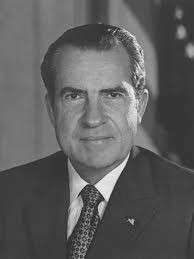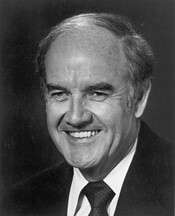REVIEW POTPOURRI: Richard Nixon
 by Peter Cates
by Peter Cates
Richard Nixon
The 37th President Richard Milhous Nixon (1913-1994) would often take long walks along the beach at his San Clemente vacation house on the Pacific Coast. I vividly remember seeing photos of him taken from a distance by the journalists whom he despised and whose favor he rarely, if ever, sought.
Regardless of the pressures any president of the United States experiences even in recent years, Nixon conveyed a definite aura of mien in his bearing (During the final months of his presidency when Watergate was the most frequently reported topic, Press Secretary Ron Ziegler made the mistake of speaking to the president who suddenly lashed out at Ziegler with his arms.)
Nixon doggedly fought his way up the ladder, did well in school growing up in Whittier, California, and attending Whittier College before getting a scholarship to Duke University Law School; he was elected to the House of Representatives in 1946 and became Senator in 1950. And he wasn’t above using smear tactics in both campaigns.
In 1952, Dwight D. Eisenhower picked Nixon as his running mate, although reluctantly since he didn’t particularly like Nixon as a human being, because Nixon had strong appeal to the very conservative Midwest and California Republicans which Eisenhower lacked as a more moderate Eastern establishment candidate.
After eight years as Ike’s Veep, the defeat in 1960 for the White House and the unsuccessful California Governor’s race in 1962, Nixon bided his time until a chain of circumstances, some of them perhaps engineered by Nixon himself, led to his being chosen as the Republican candidate in 1968, with Maryland Governor Spiro T. Agnew as the running mate, in a three-way race with Hubert Humphrey and Maine’s Edmund Muskie for the Democrats and the American Independent Party’s George Wallace and Curtis Lemay. Nixon and Agnew won by a narrow margin.
Rather than getting into Nixon’s leadership legacy which is voluminously documented, I wish to share a couple of brief personal items. When Nixon attended Whittier College, he took history courses with Professor David Henley who was married to my grandmother Cates’s first cousin, and East Vassalboro native, Lila Upham.
Secondly, uncles Paul and George Cates went to a Republican rally, in Augusta, in 1964, for Congressman Clifford McIntire who ran unsuccessfully against Muskie for the Senate; Nixon came that day to drum up support .
To conclude, I found a quote from Gore Vidal in a piece he wrote about the 1968 Republican convention at Miami Beach that nominated Nixon. Vidal is describing Ronald Reagan who had thrown his own hat in the ring after being elected in 1966 as the Governor of California. Vidal is remembering Reagan at the 1964 convention in San Francisco.
“I recalled my last glimpse of him, at the Cow Palace, in San Francisco, four years ago. The Reagans were seated in a box, listening to Eisenhower. While Mrs. Reagan darted angry looks about the hall (displeased at the press?), the star of Death Valley Days was staring intently at the speaker on the platform: as the age of television progresses, the Reagans will be the rule, not the exception.”
Back during the 1960s, I really didn’t think Ronald Reagan ever had a chance of becoming president.
In later years, the former president did a series of interviews with Diane Sawyer and David Frost and mentioned that two of his closest friends were Ed Muskie and George McGovern, Nixon’s Democratic opponent in the 1972 race who carried only one state out of the 50.
On March 16, 1974, Nixon appeared on a Grand Ole Opry TV special in Nashville with country music legend Roy Acuff (1903-1982) who taught the president how to manipulate the yo yo and talked him into playing the piano.
Another country legend Hank Williams may have best summed up Acuff’s appeal:
“He’s the biggest singer this music ever knew. You booked him and you didn’t worry about crowds. For drawing power in the South, it was Roy Acuff, then God.”
Two ten-inch 78s here at the house feature Acuff’s uniquely down home singing and fiddling with his long time colleagues, the Smoky Mountain Boys.
Okeh 05297 from July 5 and 6, 1939, contains two sacred music selections, Drifting Too Far from the Shore, and Eyes are Watching You; Columbia 36856, recorded August 2, 1945, has Pins and Needles, and a song composed by Acuff’s business partner Fred Rose, We Live in Two Different Worlds.
Responsible journalism is hard work!
It is also expensive!
If you enjoy reading The Town Line and the good news we bring you each week, would you consider a donation to help us continue the work we’re doing?
The Town Line is a 501(c)(3) nonprofit private foundation, and all donations are tax deductible under the Internal Revenue Service code.
To help, please visit our online donation page or mail a check payable to The Town Line, PO Box 89, South China, ME 04358. Your contribution is appreciated!




Leave a Reply
Want to join the discussion?Feel free to contribute!